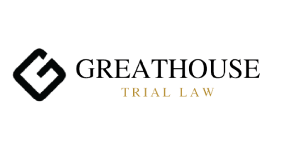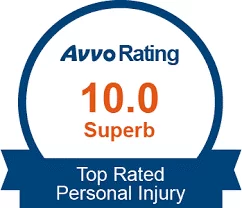Worker’s compensation and personal injury cases seem very similar, and in some ways, they are. However, they apply in different areas of our lives. Read Greathouse Trial Law’s blog to learn more about the differences between workers’ compensation and personal injury cases.
What is workers’ compensation?
Workers’ compensation is a type of insurance that provides medical expenses, lost wages, and rehabilitation costs to injured employees. Workers’ compensation aims to get you back to work unless a medical professional has decided otherwise.
Georgia requires companies with more than three staff members to carry workers’ compensation insurance. You become eligible on your first day of employment. If you are injured at your job or because of your job, you can file a claim for benefits.
To receive workers’ compensation, you must alert your supervisor, seek medical attention, and file a claim with the State Board of Workers’ Compensation. After submitting your form, you may become eligible for weekly income benefits.
What is a personal injury lawsuit?
A personal injury lawsuit typically happens after an accident. It can cover lost wages, medical expenses, pain and suffering, and emotional distress. The goal is to protect and compensate you after your injury.
People in Georgia can file a personal injury lawsuit after being injured, either by someone else’s actions or failure to act. This type of claim typically requires you to prove that someone else’s negligence caused your injury.
If you’ve been injured by someone else, you may be entitled to financial compensation. It’s crucial to speak with an experienced personal injury attorney to help you decide your next steps and get you the benefits you deserve.
What are the differences between workers’ compensation and personal injury lawsuits?
A critical distinction between workers’ compensation claims and personal injury lawsuits is where and how the injury occurred. You can only file for workers’ compensation if you were injured on the job or while doing your job, unlike personal injury cases, which are broader.
There are also more opportunities to file a personal injury lawsuit. You can file a claim against someone for a car accident, medical malpractice, premises liability, wrongful death, etc. Workers’ compensation claims only apply when injuries happen at work.
Additionally, you require different representations for both types of cases. While we recommend speaking with an attorney in both situations, you can theoretically file for workers’ compensation on your own. But in any case, it’s always best to speak with an attorney first.
What are the similarities?
Both workers’ compensation and personal injury lawsuits apply when you have been harmed by someone else’s misconduct or an occupational hazard. These types of claims help you recover and get your life back on track.
Another similarity is that they can provide you with financial compensation, which can cover medical expenses and provide support if you cannot work. Each financial package will be different, depending on the case itself.
It’s also recommended that you speak to an experienced attorney for both workers’ compensation cases and personal injury lawsuits. A lawyer can help you determine the best way to receive the care you need.
Speak to an Expert
Workers’ compensation cases and personal injury lawsuits can disrupt your life, and it’s crucial to get the justice you deserve. If you’ve been injured and you’re ready to take the next steps, the attorneys here at Greathouse Trial Law are here for you.
Contact us today at (678) 310-2827 or complete our online form for your free case evaluation. Our personal injury law firm aims to serve the great people of Atlanta and to give a voice to the voiceless.
Copyright© 2021. Greathouse Trial Law, LLC. All rights reserved.
The information in this blog post (“post”) is provided for general informational purposes only and may not reflect the current law in your jurisdiction. No information in this post should be construed as legal advice from the individual author or the law firm, nor is it intended to be a substitute for legal counsel on any subject matter.
No reader of this post should act or refrain from acting based on any information included in or accessible through this post without seeking the appropriate legal or other professional advice on the particular facts and circumstances at issue from a lawyer licensed in the recipient’s state, country or other appropriate licensing jurisdiction.
Greathouse Trial Law, LLC
260 Peachtree Street NW
Suite 803
Atlanta, GA 30303
(678) 310-2827
https://atltriallaw.com


